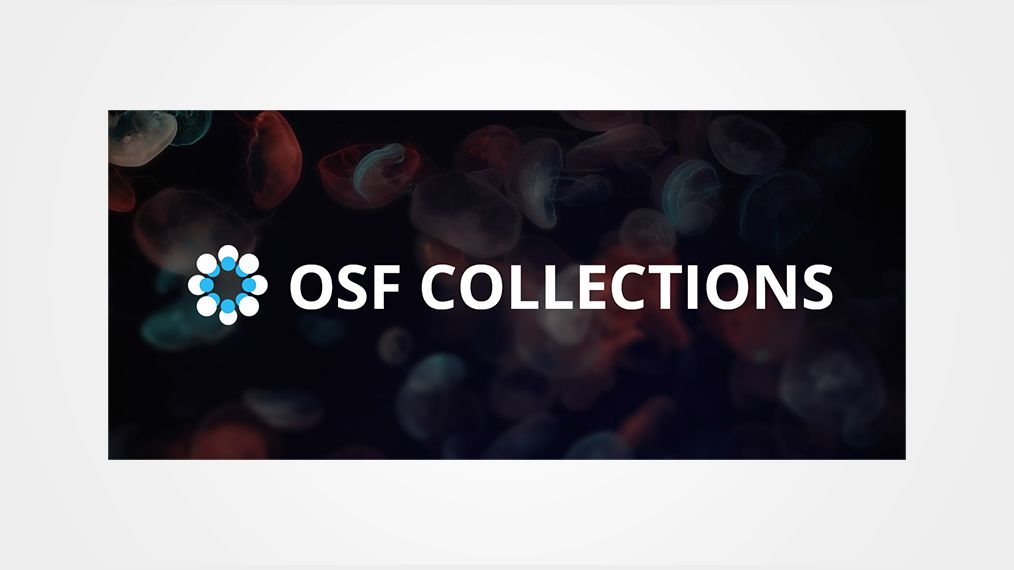
The COS team is excited to announce the launch of OSF Collections, a place for journals, funders, societies, and research communities that need an archival or active repository to collaborate, share, and discover research content such as projects, data, materials, protocols, code, or even lesson plans, syllabi, or collaborative activities.
Why OSF Collections?
Collections bring together specific research interests and taxonomies for communities searching for related research or desiring to create their own repository according to discipline, outcomes, project types, or project status. OSF Collections is a way for groups to aggregate these findings in one dedicated space to improve discoverability, to increase sharing, and to foster communities around topics and themes.
How it works
A collection is built with standard metadata -- title, description, authors, license, etc. -- and custom metadata fields of your choosing. That metadata helps visitors to search and explore your collection by project status, project type, program area, and more.
The collection set-up process is customizable to meet the needs of your research community. Funders may choose to aggregate the research outcomes of their awardees to promote the discoverability of their sponsored projects. Journals can bolster their published articles by inviting authors to share the underlying data, materials or other content associated with their research. Initiative-led groups or consortiums can share work from their own community or provide a broader community an interface for sharing and collaborating on a topical theme.
Collections are populated with existing OSF projects and components containing relevant materials. Visitors browsing collections can search and filter by keywords, authors, subjects, or other custom facets established by collection owners.
OSF users can submit existing projects to collections using an easy workflow. They can add or update metadata for easy discovery, collaboration, and reuse by colleagues and visitors to the collection.
Projects receive a collection affiliation indicator on individual project pages so that visitors who find that project first can discover the collection of related content.
You can learn more about adding projects, editing collections submissions, and collections metadata in these step-by-step instructions located in the OSF help guides.
Interested in building a collection for your research or community? We’re ready to help you get started. Visit cos.io/collections to learn more about our competitive and inclusive pricing model and to submit an interest form. Or, send your questions to collections@cos.io and our Product team will help you determine how OSF Collections can best support your community.
The Center for Open Science (COS) is a non-profit technology and culture change organization founded in 2013 with a mission to increase openness, integrity, and reproducibility of scientific research. COS pursues this mission by building communities around open science practices, supporting metascience research, and developing and maintaining free, open source software tools. The OSF is a web application that provides a solution for the challenges facing researchers who want to pursue open science practices, including: a streamlined ability to manage their work; collaborate with others; discover and be discovered; preregister their studies; and make their code, materials, and data openly accessible. Learn more at cos.io and osf.io.

6218 Georgia Avenue NW, Suite #1, Unit 3189
Washington, DC 20011
Email: contact@cos.io

Unless otherwise noted, this site is licensed under a Creative Commons Attribution 4.0 International (CC BY 4.0) License.
Responsible stewards of your support
COS has earned top recognition from Charity Navigator and Candid (formerly GuideStar) for our financial transparency and accountability to our mission. COS and the OSF were also awarded SOC2 accreditation in 2023 after an independent assessment of our security and procedures by the American Institute of CPAs (AICPA).
We invite all of our sponsors, partners, and members of the community to learn more about how our organization operates, our impact, our financial performance, and our nonprofit status.